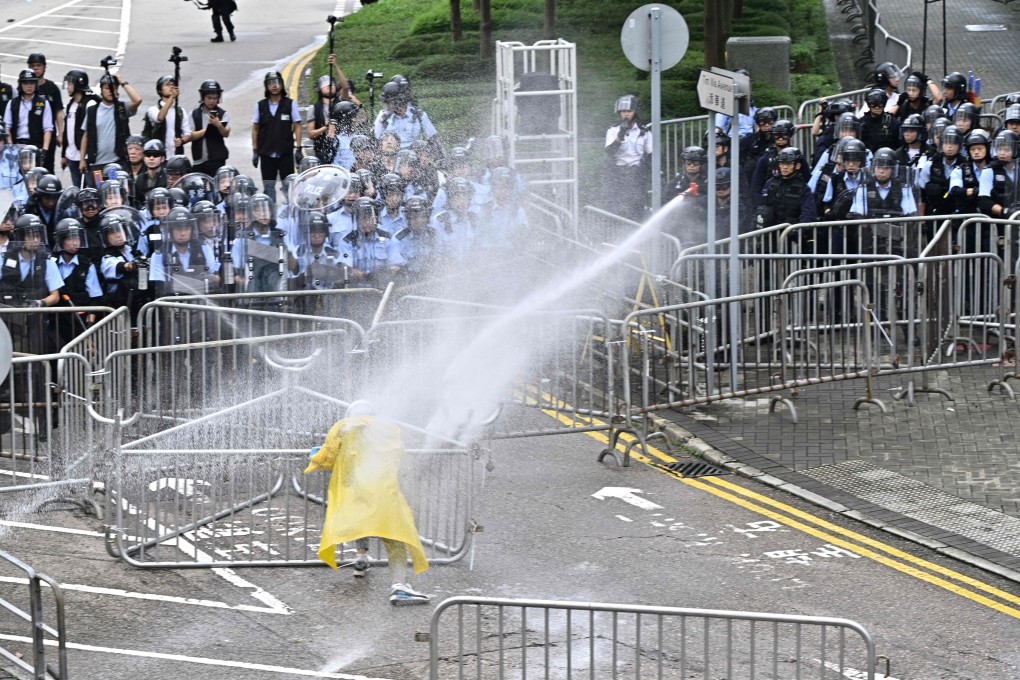Hang Seng Index drops by the most in five weeks as Hong Kong’s biggest protest rally in decades finds city on edge
- The Hang Seng Index fell 1.7 per cent to 27,308.46, its biggest daily decline since a 2.4 per cent plunge on May 9 amid escalating tensions between the United States and China over trade
- Stock indexes declined in Shanghai and Shenzhen, as China’s fastest inflation in 15 months weighed on investors

The Hang Seng Index fell 1.7 per cent to 27,308.46, its biggest daily decline since a 2.4 per cent plunge on May 9 amid escalating tensions between the United States and China over trade.
“The main issue the market is facing is still the Sino-US trade tussle. We have not seen the end of that,” said Louis Tse Ming-kwong, managing director at VC Asset Management.
A Sunday rally brought out hundreds of thousands of protesters – organisers said 1 million showed up, while the police put the turnout at 240,000 – on to the city’s streets to oppose a proposed extradition bill, in the biggest demonstration since the 1997 handover of Hong Kong by the United Kingdom to China. The proposal would allow suspects to be transferred to jurisdictions with which the city does not have an extradition agreement, including mainland China.